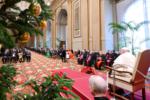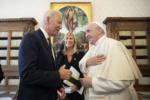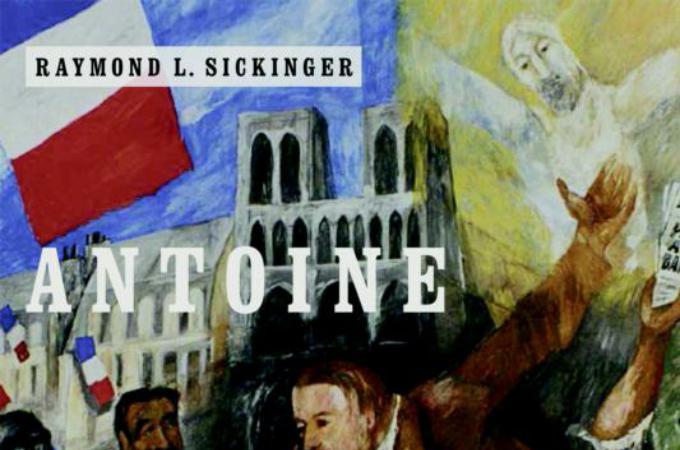Biography of Society of St. Vincent de Paul founder is dense with details
"Antoine Frederic Ozanam" by Raymond L. Sickinger. University of Notre Dame Press (Notre Dame, Indiana, 2017). 412 pp., $60.
One question readers might have after reading "Antoine Frederic Ozanam" is this: When will this man be canonized a saint?
That might be their only unanswered question because Raymond Sickinger, who chairs the department of history and classics at Providence College, provides a thorough, detailed examination of every aspect of the life of the founder of the Society of St. Vincent de Paul.
It is, to be sure, a slow read due to that detail, which at times is almost overwhelming. But those details, culled from the research of Sickinger and others, Ozanam's writing and his correspondence with friends, academic colleagues and others are the primary reason this is a comprehensive volume.
The manner in which the author organizes the material helps make it engaging and inspiring reading -- the latter aided by use of direct quotes from Ozanam's writing, e.g., "Charity does not consist so much in distributing of bread as in the manner it is distributed."
While many are familiar with the Society of St. Vincent de Paul and the charitable work it does, what they will learn here is how the society came to be and what made it different from the work of other charitable groups. That difference is reflected in Ozanam's report to his conference of Vincentians in 1834, a year after the society was founded: "As (St.) Vincent taught us, the poor are hungry, so we must first give them bread in order to dispose them to receive the Gospel."
Throughout, one learns that Ozanam was a scholarly person with doctorates in law and literature, and he was a loving person, sensitive to the needs of those around him, i.e., parents, siblings, wife, daughter. He extended that love and sensitivity to those within various French communities who today would have been considered "on the margins."
From those whose words Sickinger cites, including Ozanam's wife, Amelie, readers learn of a thread that ran throughout the man's life: He could not be happy when others were suffering. That response was, no doubt, rooted in the Gospel. He not only wrote and spoke about outreach to the poor, but personally served them, and taught others to do the same, through an enthusiastic, dedicated practice of the Gospel.
Two chapters in particular -- one on servant leadership, the other on systemic change -- should resonate with Catholics who have embraced the Gospel and Catholic social teaching. Like St. Vincent de Paul, Ozanam expected Vincentians to see the face of Christ in the poor.
For him and those who ministered with him, it required more: "We must do what is most agreeable to God. Therefore, we must do what Our Lord Jesus Christ did when preaching the Gospel. Let us go to the poor."
Sickinger provides a large quantity of information about Ozanam because there was much to say. But he also provides the context for that information, the "why" as to who Ozanam was and how his Catholic faith would allow him to make an impact upon the poor.
What stands between Ozanam and sainthood is one miracle being officially recognized as being due to his intercession. If that time comes, those who read this book will know why he is being so honored.
- - -
Olszewski is the editor of The Catholic Virginian, newspaper of the Diocese of Richmond, Virginia.



















